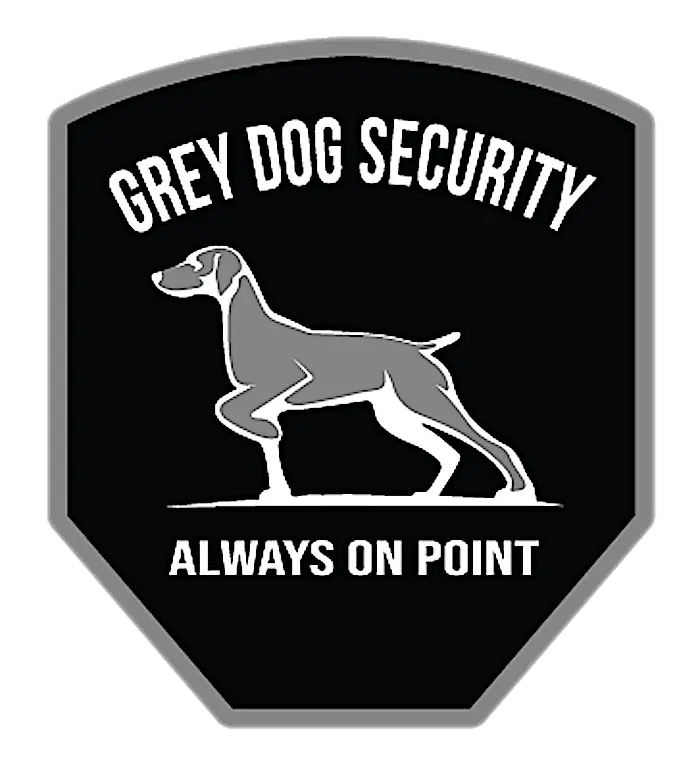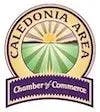20 Overlooked Home and Work Safety Hazards That You Should Know (Security Guard's Insights)
Grey Dog Security
AuthorPhysical security guards are the silent protectors in our homes, businesses, and neighborhoods. We go beyond just responding to emergencies – our keen observation skills help prevent them.

While most people might miss potential hazards, a security guard's trained eye can spot fire risks, suspicious activity, or even slip-and-fall accidents waiting to happen. The daily patrols across diverse environments hone our ability to identify these often-ignored dangers.
In this article, Grey Dog Security will share insider knowledge of 20 total common safety hazards lurking in your everyday environment—from homes and offices to apartment buildings—that most people overlook.
As experienced security professionals servicing within West Michigan areas, we'll go beyond listing these hidden dangers. We'll also explain why our presence and security services extend beyond crime prevention to keep you truly safe.
10 Overlooked Safety Hazards At Home Or Residential Buildings
Our homes are supposed to be our havens— where we can relax and feel secure.
But the reality is that even the most familiar environments can harbor hidden dangers. These dangers frequently go unnoticed in our daily routines but can seriously threaten our safety and well-being.

Here are 10 often-overlooked safety concerns and scenarios, along with how a security guard's presence can provide an extra layer of protection:
1. Inadequate or Poor Lighting
Hazard #1: Poor lighting in and around the home or residential building can increase the risk of accidents and make it easier for intruders to approach undetected. Dimly lit areas can conceal potential hazards, such as steps, obstacles, or slippery surfaces.
Security Guard's Role: They can identify areas with inadequate lighting and recommend improvements. They can also perform regular checks to ensure that outdoor lights, such as those in parking lots or pathways, are functioning properly.
2. Carbon Monoxide Gas Leaks
Hazard #2: Malfunctioning gas appliances, a blocked chimney, or even a faulty furnace can release carbon monoxide into your home without you realizing it. This gas has no odor, color, or irritant properties, making it difficult for any resident to detect. Leaking gas lines pose a fire and explosion risk.
Security Guard's Role: Qualified security officers can perform routine checks of common areas in apartment buildings, including hallways, laundry rooms, and garbage disposal areas, and report any suspicious odors or signs of leaks to residents and emergency services immediately.
3. Life-Threatening Medical Crises
Hazard #3: Residents in a neighborhood may experience unexpected medical emergencies, such as heart attacks, strokes, or accidents, where they are unable to call for help themselves. This can be a serious hazard, as the lack of immediate assistance can lead to further complications or even loss of life.
Security Guard's Role: Some security guards are trained in basic first aid. Their ability to provide prompt and effective assistance during medical crises could eventually save lives and minimize this dangerous situation.
4. Severe Weather Emergencies
Hazard #4: Severe weather events like storms, floods, or extreme heat can catch us unprepared. Power outages can disrupt communication and leave us without light or essential appliances. Rising floodwaters can trap residents in their homes or block escape routes.
Security Guard's Role: A security officer can identify impending danger and alert residents to take precautions, like evacuating to a secure area. They can also use radios or satellite phones to communicate with residents and emergency responders during outages.
5. Fire Safety Oversights
Hazard #5: Faulty wiring, overloaded electrical outlets, unattended candles, and kitchen mishaps can all lead to house fires. Fire threats are often overlooked until it's too late, resulting in devastating consequences.
Security Guard's Role: In the event of a fire, guards can quickly evacuate residents, use fire extinguishers, and coordinate with fire departments to mitigate damage and ensure everyone's safety.
6. Failed Home Security Systems
Hazard #6: Many homeowners rely on security systems such as surveillance cameras for protection, but these systems can fail due to power outages, technical malfunctions, or user error. Without a functioning security program system, access points to your home become more vulnerable to break-ins and other security threats.
Security Guard's Role: A security personnel can act as a backup to home security systems, providing real-time monitoring and response capabilities. They can perform regular checks to ensure that security systems are operational and respond quickly to any alarms or alerts.
To learn more about this, read our previous article- Security Guards vs. Technology: Reasons Why Human Vigilance Prevails!
7. Unsupervised Pool Area
Hazard #7: Unsupervised pools can be extremely dangerous, especially for children and pets. Drowning is a leading cause of accidental death in children under five.
Security Guard's Role: They can monitor pool areas to ensure that safety rules are followed and that children are not left unattended. They can also check that pool gates and covers are secure and in good condition. In case of an emergency, guards can perform rescues and provide first aid until medical help arrives.
8. Improper Storage of Toxic Substances
Hazard #8: Many households contain hazardous materials like cleaning products, pesticides, or medications. Improper storage or accidental ingestion of these substances can lead to poisoning.
Security Guard's Role: A security personnel can educate residents about the proper storage and disposal of hazardous materials. They can also be alert to signs of poisoning, such as unusual behavior or difficulty breathing, and call emergency services if needed.
9. Falling Debris or Objects
Hazard #9: Debris or heavy objects left unsecured in balconies, common areas, or even inside homes can pose a falling hazard. This could cause injuries to residents or damage property.
Security Guard's Role: They can be vigilant about keeping common areas clear of clutter and unsecured objects. They can also report any potential falling hazards within their sight to building management for proper removal.
10. Crime During Sudden Crises
Hazard #10: Natural disasters or power outages can create a window of opportunity for criminal activity. Looting, burglary, or scams targeting vulnerable residents can occur during these chaotic times.
Security Guard's Role: They can provide a reassuring presence during emergencies. They can patrol the area to deter criminal activity, assist residents in need, and work with emergency responders to ensure everyone's safety. Maintaining accurate incident reports is crucial for tracking and reporting any criminal incidents that occur during the crisis.
Other 10 Disregarded Workplace Safety Hazards
The hustle and bustle of daily work can make it easy to overlook subtle safety threats. These seemingly minor hazards can snowball into serious accidents, injuries, or even security breaches.

Here's how having a security guard on-site can be a lifesaver to these 10 missed safety hazards:
11. Poorly Marked Exits and Pathways
Hazard #11: In emergencies, poorly marked exits and pathways can lead to confusion and delay evacuations, increasing the risk of injury or fatalities.
Security Guard's Role: Security guards can ensure that exits and emergency pathways are marked and free of obstructions. They can also conduct drills to familiarize employees with emergency evacuation routes.
12. Malfunctioning Elevator
Hazard #12: Malfunctioning elevators or improper use of elevators during power outages can pose serious safety risks to employees and visitors. Issues such as sudden stops, door malfunctions, or overloading can lead to injuries or entrapment.
Security Guard's Role: They can also monitor elevator usage and ensure that employees and visitors are following proper safety protocols, such as not overloading the elevator or using the emergency stop button inappropriately.
13. Unsecured Building Access
Hazard #13: Poor access control procedures, malfunctioning security systems, or simply leaving doors propped open can create opportunities for unauthorized entry. This can lead to theft, vandalism, or even security breaches.
Security Guard's Role: They can verify identification, monitor entry points, and ensure proper procedures are followed for visitors and deliveries. They can also report any suspicious activity or breaches in security protocols.
14. Workplace Violence
Hazard #14: Even non-confrontational workplaces can experience violence from disgruntled customers, agitated visitors, or personal conflicts. Workplace violence can range from verbal threats and intimidation to physical assault and can have a devastating impact on victims, colleagues, and the overall work environment.
Security Guard's Role: The presence of a security officer deters violence and allows them to spot warning signs like aggression or threats. Their de-escalation skills and awareness of potential issues help them diffuse tense situations before they turn physical.
15. Slips, Trips, and Falls
Hazard #15: These seemingly simple occurrences are a leading cause of workplace injuries. Wet floors, uneven surfaces, cluttered walkways, and improper footwear can all contribute to slips, trips, and falls.
Security Guard's Role: Security guards can be vigilant in spotting potential slip and fall hazards. They can report spills or leaks promptly and ensure common areas are kept clear of clutter. Additionally, guards can be trained to properly respond to a fall incident, rendering first aid if necessary and ensuring the safety of the injured person.
16. Unreported Near Misses
Hazard #16: Near misses, where an accident almost happens, are valuable opportunities to identify and address potential hazards before they cause serious injury or damage. However, employees may be reluctant to report near misses for fear of reprimand or blame.
Security Guard's Role: They can foster a culture of safety by encouraging employees to report all near misses, no matter how minor they seem. They can help create a safe space for reporting and work with management to investigate incidents and implement corrective measures to prevent future occurrences.
17. Working Under the Influence
Hazard #17: Employees who come to work under the influence of drugs or alcohol pose a serious safety risk to themselves and others. Their impaired judgment and coordination can lead to accidents, injuries, and even fatalities.
Security Guard's Role: They can identify signs of intoxication, such as slurred speech, unsteady gait, or unusual behavior. They can report these concerns to supervisors and, in severe cases, remove the employee from the situation until appropriate action is taken.
18. Working Alone with Unfamiliar Clients or Customers
Hazard #18: Certain professions, like social workers, service technicians, or delivery drivers, may involve working alone with unfamiliar clients or customers. This can pose a safety risk, especially if the location is isolated or the client/customer behavior is unpredictable.
Security Guard's Role: Companies can establish protocols where lone workers check in with security guards before and after visiting clients, especially those in high-risk locations. Security guards can identify potentially dangerous situations and offer support, such as accompanying the lone worker to the appointment or discreetly monitoring the situation from a distance.
19. Heatstroke or Hypothermia in Uncontrolled Environments
Hazard #19: Workers in warehouses with fluctuating temperatures, construction sites with extreme weather exposure, or even those working outdoors during seasonal shifts can be at risk of heatstroke or hypothermia.
Security Guard's Role: Security guards can be trained to identify signs of heatstroke or hypothermia. They can also monitor weather conditions and remind employees to dress appropriately and stay hydrated. In warehouses or construction sites, security guards can ensure proper ventilation systems are functioning and report any malfunctions.
20. Exposure to Hazardous Materials in Unattended Areas
Hazard #20: Lone workers in laboratories, chemical plants, or other environments with hazardous materials may be at risk of exposure if proper safety protocols are not followed, especially if working in unattended areas.
Security Guard's Role: Security guards can be trained to identify restricted areas or biohazard zones and ensure lone workers have the necessary permits and personal protective equipment (PPE) before entering. They can also monitor access points to ensure proper decontamination procedures are followed upon exiting these areas.
Grey Dog Security: Best Local Security Service Providers in West Michigan Areas
When it comes to protecting your home or business, choosing the right security provider is necessary.

Grey Dog Security stands out as a leader in West Michigan, offering a comprehensive approach that goes beyond just security guards.
Here's why Grey Dog Security is the ideal partner to address these disregarded safety hazards you might not be aware of:
- Expert Awareness: We can identify these neglected threats outlined in the article and many more. We proactively address potential threats you might miss, preventing incidents before they occur.
- Customized Security Plans: A one-size-fits-all approach to security simply doesn't cut it. We tailor security plans to your specific needs, whether it's your home or business. This ensures you get the most effective protection against the vulnerabilities unique to your property.
- 24/7 Support: Emergencies don't follow a schedule. With us, you have access to round-the-clock support, providing a constant safety net and immediate assistance whenever needed.
With us, you gain a proactive security partner who looks beyond the obvious of providing security services. Our commitment to community, customization, expertise, and constant vigilance makes us the ideal choice to guard your homes or businesses from potential dangers and a wide range of security threats.
Call us at 1-800-903-4110 or email us at info@greydogsecurity.com for a free consultation.
- Let's work together to create secure and resilient communities, one step at a time.
Conclusion
As a leading security guard provider in West Michigan, we've witnessed situations like unattended stoves that could have caused serious fires. Our patrolling guards identified and prevented this potential hazard, highlighting the importance of safety awareness.
Situations like these show the importance of safety awareness and the consequences of overlooking potential hazards.
The presence of physical security personnel in these often-neglected situations is essential, as we can help to identify and mitigate safety risks more effectively. Security guards can conduct regular safety inspections, security solutions, and guidance to employees and residents, and serve as a valuable resource for addressing safety concerns.
Make safety a priority—partner with us to create a safer environment for your home or workplace. Together, we can prevent accidents and ensure peace of mind.
Frequently Asked Questions (FAQ)
1. Why is it important to be aware of overlooked safety hazards at home and work?
Awareness of overlooked safety hazards is crucial because it helps prevent accidents and injuries, which can occur unexpectedly in both home and work environments. Addressing these hazards proactively ensures a safer living and working space, reduces the risk of costly legal issues, and promotes overall well-being and productivity.
2. What role does a security guard play in identifying safety hazards?
Security guards are qualified to identify and report potential safety hazards. They conduct regular patrols, monitor security systems, and ensure compliance with safety protocols. Their vigilance helps prevent accidents and enhance overall security.
3. What should I do if I identify a safety hazard at home or work?
- Report the Hazard: Immediately inform the relevant person or authority responsible for safety.
- Take Immediate Action: If it’s safe, take steps to mitigate the hazard. For example, move obstacles out of walkways or secure loose cords.
- Follow-up: Ensure that the reported hazard is addressed and resolved. If necessary, check back to confirm that corrective actions have been taken.
4. What are some long-term strategies for maintaining a safe home and work environment?
- Continuous Education: Keep yourself and others informed about safety through ongoing education and training.
- Regular Inspections: Conduct periodic safety inspections to identify and mitigate new hazards.
- Promote a Safety Culture: Encourage a culture of safety where everyone is responsible for identifying and addressing hazards.
- Review and Update Policies: Regularly review and update safety policies to reflect the latest best practices and regulatory requirements.
5. Can Grey Dog Security assist with safety assessments?
Yes, Grey Dog Security offers comprehensive safety assessment programs tailored to meet the needs of both home and work environments. Our professionals can help identify potential hazards and provide customized solutions to enhance safety in your home, workplace, and business buildings.
© 2025 Grey Dog Security. All Rights Reserved.
Designed and Powered by WebriQ.



